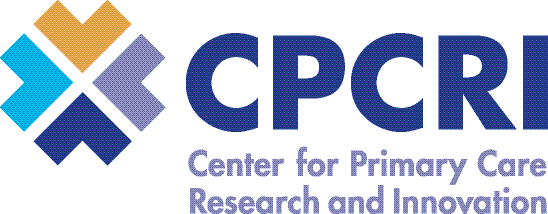Jennifer Hemler, PhD, ESCALATES Qualitative Team
Primary care practices in the U.S.—particularly small, independent practices—face significant challenges to care delivery improvement: overburdened staff, time limitations, and financial constraints are just a few (read more about stressors here). In EvidenceNOW, Cooperatives took primary care practices’ needs and burdens to heart when designing their interventions to improve cardiovascular preventive care. Cooperatives offered practices several forms of external support to mitigate stressors and help practices achieve the aims of EvidenceNOW.
 A primary stressor for practices is that they have little time and staff to devote to quality improvement; some practices benefitted from an experienced professional to guide them through the change process. All Cooperatives employed practice facilitators to motivate practices, outline goals, and break tasks into manageable, actionable pieces. Facilitators varied in style and approach, but most emphasized “meeting practices where they are.” They designed strategies to work around practice-identified “pain points,” make workflow changes, optimize staff roles, and increase efficiency while improving the ABCS measures. Facilitators also offered practices other intervention components they could choose to participate in, like learning collaboratives or peer-to-peer events where practices could learn and share improvement strategies with others, potentially creating long-lasting supportive networks.
A primary stressor for practices is that they have little time and staff to devote to quality improvement; some practices benefitted from an experienced professional to guide them through the change process. All Cooperatives employed practice facilitators to motivate practices, outline goals, and break tasks into manageable, actionable pieces. Facilitators varied in style and approach, but most emphasized “meeting practices where they are.” They designed strategies to work around practice-identified “pain points,” make workflow changes, optimize staff roles, and increase efficiency while improving the ABCS measures. Facilitators also offered practices other intervention components they could choose to participate in, like learning collaboratives or peer-to-peer events where practices could learn and share improvement strategies with others, potentially creating long-lasting supportive networks.
 Additionally, practices across EvidenceNOW also needed various levels of technological support to access their EHR data for improvement. While some practices were part of health systems with centralized HIT departments, others were solo clinicians with limited EHRs and less ability to extract data. Many practices needed more data functionality than their EHRs could provide or than they could afford. For these practices, several Cooperatives employed EHR/Data Experts to program reports from server EHR data and/or connect practices to additional resources. Once practices had reliable patient-level data, facilitators helped them use these data for visit planning and outreach, while they used their clinician and practice-level data for performance feedback and benchmarking against other practices.
Additionally, practices across EvidenceNOW also needed various levels of technological support to access their EHR data for improvement. While some practices were part of health systems with centralized HIT departments, others were solo clinicians with limited EHRs and less ability to extract data. Many practices needed more data functionality than their EHRs could provide or than they could afford. For these practices, several Cooperatives employed EHR/Data Experts to program reports from server EHR data and/or connect practices to additional resources. Once practices had reliable patient-level data, facilitators helped them use these data for visit planning and outreach, while they used their clinician and practice-level data for performance feedback and benchmarking against other practices.
 Lastly, some practices wanted advice from clinical experts on their questions about the ABCS guidelines or delivering specialized care. Cooperatives offered expert consulting through in-person consulting, online interactive webinars, or “ask an expert” by email. For some practices, online learning and access to web-based modules and resources was a convenient complement or substitute for an in-person expert consultation. Overall, each Cooperative tailored these external support strategies to the individual practice, working on what the practice identified as a priority. By aligning work on practice pain points with improving practice capacity and clinical performance on the ABCS, the Cooperatives helped practices achieve a triple win.
Lastly, some practices wanted advice from clinical experts on their questions about the ABCS guidelines or delivering specialized care. Cooperatives offered expert consulting through in-person consulting, online interactive webinars, or “ask an expert” by email. For some practices, online learning and access to web-based modules and resources was a convenient complement or substitute for an in-person expert consultation. Overall, each Cooperative tailored these external support strategies to the individual practice, working on what the practice identified as a priority. By aligning work on practice pain points with improving practice capacity and clinical performance on the ABCS, the Cooperatives helped practices achieve a triple win.

